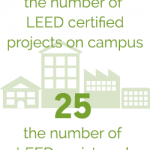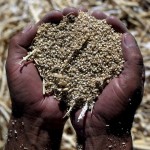Poplar trees, especially genetically modified poplars, have been in the news for their ability to decontaminate the ground of chemicals, specifically oil. In the link, the specific contaminant is TCE…an industrial solvent. The poplar trees absorb the water with the chemical over a period of about three years, the tree is cut down, and then put into a landfill.
This process seems unsustainable at first, but removing the contaminated ground takes more work and money. Also, poplar trees are fast-growing and short-living, so they’re the perfect candidate for the task.
What are some ways to test the efficacy of the poplar trees? How is it impacting landfills? Can we do anything else with the “used-up” trees?




Recent Comments